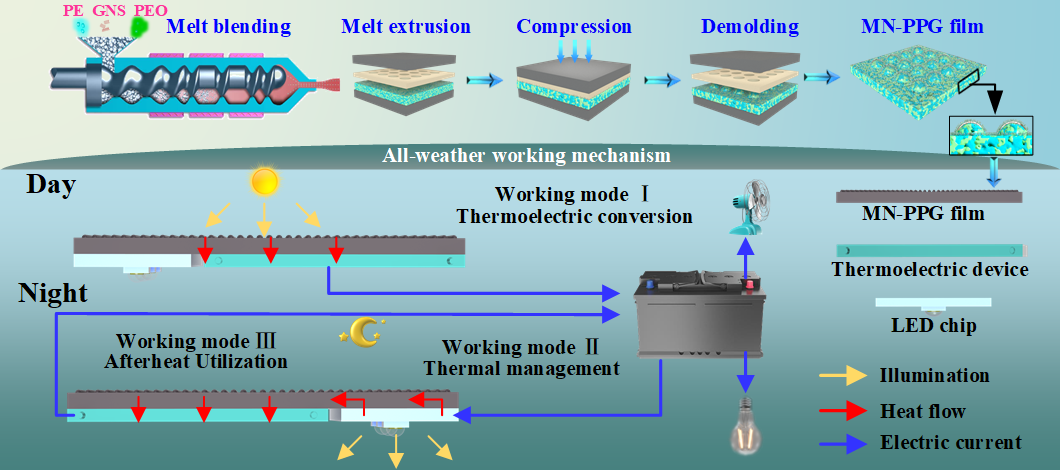Recently, the research group led by Prof. Qu Jinping and Prof. Wu Ting published their research work entitled "Bioinspired Micro/Nanostructured Polyethylene/Poly(Ethylene Oxide)/Graphene Films with Robust Superhydrophobicity and Excellent Antireflectivity for Solar–Thermal Power Generation, Thermal Management, and Afterheat Utilization" online at ACS Nano.
The rational utilization and circulation of multiple energy sources is an effective way to address the crises of energy shortages and environmental pollution. Herein, microextrusion compression molding, an industrialized polymer molding technology that combines melt blending and compression molding, is proposed for the mass production of a bioinspired micro/nanostructured polyethylene/poly(ethylene oxide)/graphene (MN-PPG) film. The MN-PPG film exhibits robust shape stability, high storage energy density, and excellent thermal management capability owing to the cocontinuous network formed by poly(ethylene oxide) and the polyethylene matrix. The MN-PPG film has sufficient photothermal property due to the uniformly dispersed graphene nanosheets and the bioinspired surface micro/nanostructures. Interestingly, the MN-PPG film surface exhibits durable superhydrophobicity, acid/alkali resistance, and active deicing performance. Further, a multifunctional energy harvesting and circulation system was established by integrating the MN-PPG film, an LED chip, and a thermoelectric module. The hybrid system produced an open-circuit voltage of 315.4 mV and power output of 2.5 W m–2 under 3 sun irradiation. Furthermore, the afterheat generated by the LED chips at night can be converted into electricity through thermoelectric conversion. The proposed method enables the large-scale fabrication of multifunctional phase change composites for energy harvesting in harsh environments.

Link to this paper: https://pubs.acs.org/doi/10.1021/acsnano.2c06065